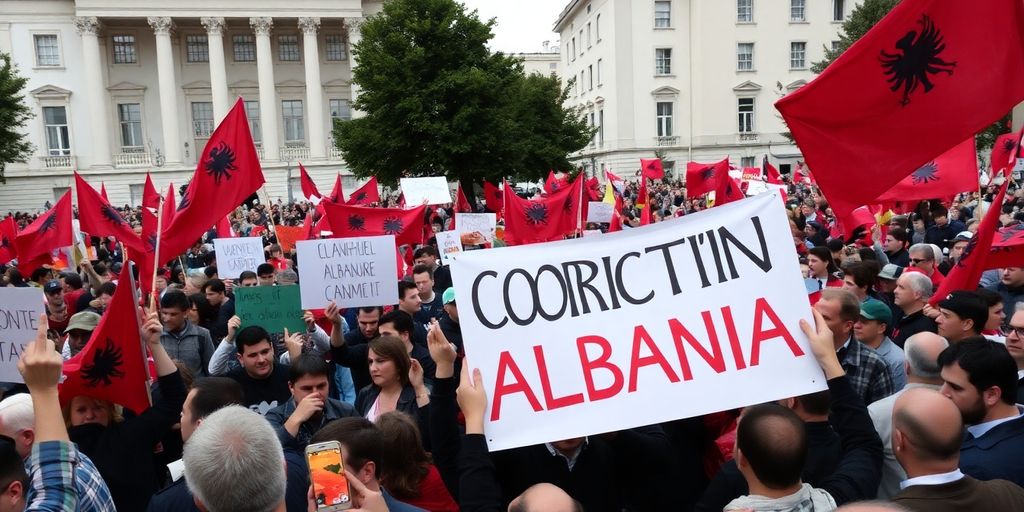Albania is currently embroiled in a political crisis as the country prepares for parliamentary elections on May 11, 2025. The election is marked by serious corruption allegations against opposition leader Sali Berisha and his attempts to leverage connections with former President Donald Trump to bolster his campaign.
Key Takeaways
- Sali Berisha, leader of the Democratic Party, faces corruption charges and seeks to overturn U.S. sanctions.
- Berisha has hired a lobbying firm with ties to Trump to assist in his campaign.
- Prime Minister Edi Rama, representing the Socialist Party, is also facing accusations of corruption and authoritarianism.
- The election is framed as a battle between pro-Trump and pro-Soros factions in Albanian politics.
Background of the Political Landscape
Albania’s political environment has been increasingly polarized, with the upcoming elections seen as a referendum on the influence of foreign powers in domestic politics. Berisha, who has served as both president and prime minister, has been accused of corruption, including misappropriation of public funds and facilitating land deals for personal gain. In 2021, the U.S. State Department designated him as a “persona non grata” due to these allegations.
In response to his legal troubles, Berisha has sought assistance from the Trump administration, hiring the lobbying firm Continental Strategy for over $6 million to help lift the sanctions against him. This firm employs several individuals with close ties to Trump, including Chris LaCivita, who is providing electoral advice to Berisha’s campaign.
The Role of Foreign Influence
The election has drawn attention not only for its domestic implications but also for the involvement of foreign entities. Berisha’s campaign has been supported by the Heritage Foundation, a conservative think tank that has been instrumental in shaping Trump’s policies. This partnership has raised concerns about the potential for foreign influence in Albanian politics, with critics arguing that it undermines the integrity of the electoral process.
Prime Minister Edi Rama has also acknowledged the influence of Trump, stating that his administration could benefit from a strong relationship with the former president. Rama’s government has been accused of authoritarian practices, including the suppression of opposition voices and manipulation of the judiciary to target political rivals.
The Clash of Ideologies
The upcoming election is being framed as a battle between two opposing ideologies: the pro-Trump faction led by Berisha and the pro-Soros faction represented by Rama. Berisha has positioned himself as a defender of conservative values, while Rama has been criticized for his ties to liberal philanthropist George Soros, who has been accused by Berisha of orchestrating a campaign against him.
This ideological clash has intensified the political atmosphere in Albania, with both sides accusing each other of corruption and undermining democracy. The stakes are high, as the outcome of the election could significantly impact Albania’s aspirations for European Union membership and its overall political stability.
Conclusion
As Albania approaches its parliamentary elections, the intertwining of local politics with international influences raises critical questions about the future of democracy in the country. With corruption allegations hanging over both major parties, the election will not only determine the next government but also set the tone for Albania’s political landscape in the years to come.
Sources
- Facing Corruption Allegations, Albanian Opposition Leader Hires Trump-Linked Lobbying Team – Mother Jones, Mother Jones.
- Trump’s anti-EU rhetoric haunts Albanian election – POLITICO, POLITICO.eu.
- Accusations of lawfare in Albania sparks concern over upcoming election as conservatives targeted, Fox News.
- Group Behind ‘Autocratic’ Trump Agenda Working on Albanian Election, DeSmog.
- Albania Election: Incumbent PM Edi Rama Praises Trump as ‘Good for Everyone’, Bloomberg.com.






